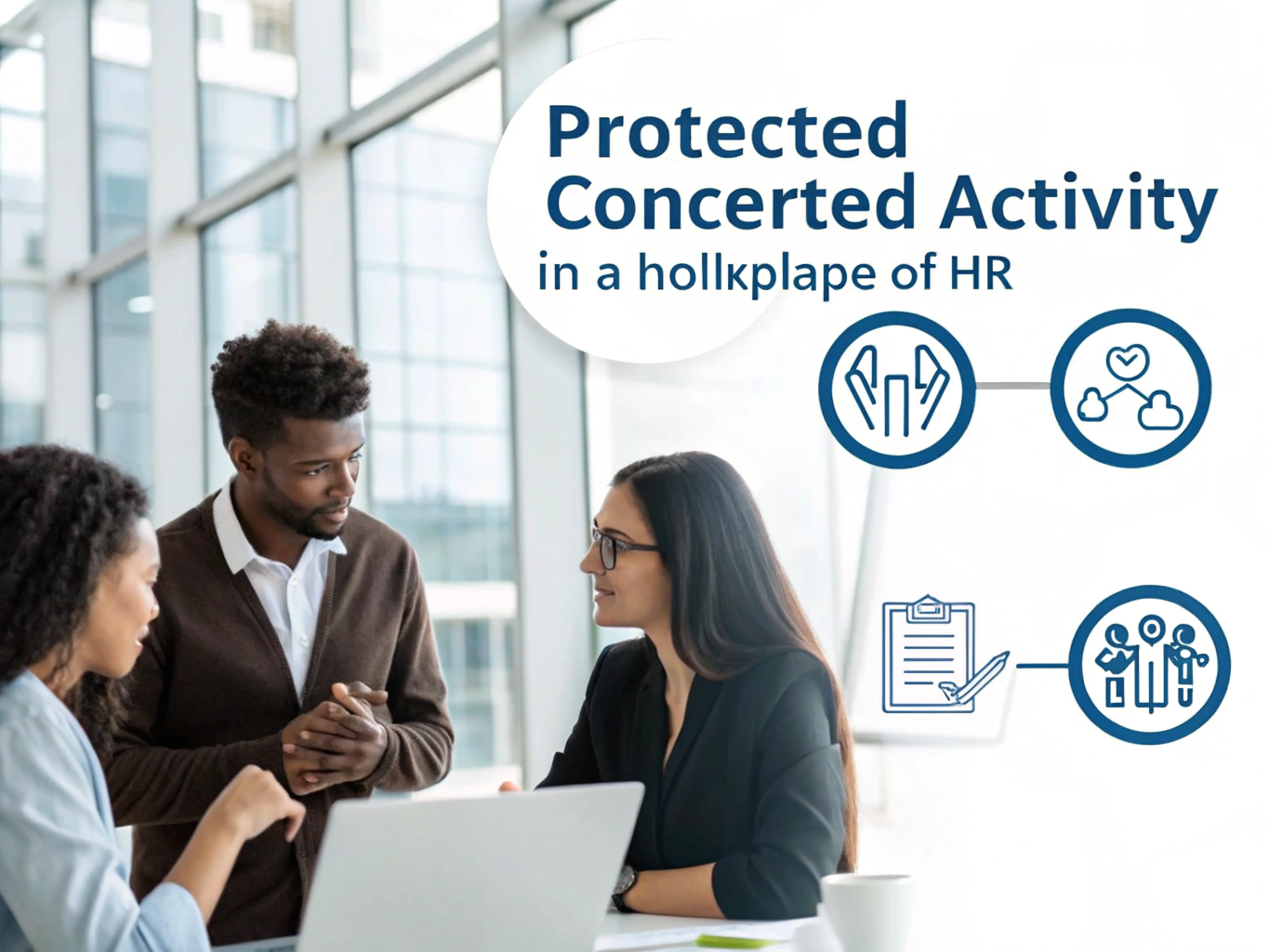Definition
Protected Concerted Activity is a legal term that refers to the rights of employees to engage in collective actions aimed at improving their working conditions. This concept is safeguarded under labor laws, particularly the National Labor Relations Act (NLRA) in the United States. It empowers employees to come together, discuss workplace issues, and advocate for changes—whether or not they are part of a union—without the fear of retaliation from their employer.
Key Components
Understanding the core elements of Protected Concerted Activity can help you navigate employee rights more effectively. Here are some key components to consider:
- Right to Discuss Employment Conditions: Employees have the right to talk about their pay, work hours, and other employment terms with coworkers. For example, if a group of employees feels they are underpaid, they can discuss this among themselves without worrying about facing disciplinary action.
- Right to Organize: Employees can form or join unions and engage in activities that promote union interests. This means they can hold meetings, hand out flyers, or even recruit new members. Think of a scenario where employees want to improve workplace safety; they can band together to push for change.
- Protection from Retaliation: Employers cannot punish employees for engaging in these activities. For instance, if an employee speaks up about unsafe working conditions and is subsequently demoted or fired, that could be a violation of their rights.
- Collective Bargaining: Through protected concerted activity, employees can negotiate with their employer for better conditions. A group of employees might decide to approach management together to discuss a raise, leveraging their collective voice.
- Legal Remedies: Employees have the right to file complaints if they believe their rights have been violated. This process usually involves the National Labor Relations Board (NLRB), which can investigate and take action as necessary.
Importance in the Workplace
Protected Concerted Activity is more than a legal term; it’s a crucial aspect of workplace culture. When employees feel safe to voice their concerns collectively, it leads to a healthier work environment. For example, consider a retail store where employees notice unsafe working conditions. If they can discuss these issues without fear, they are more likely to collaborate and propose solutions, benefiting both the employees and the employer.
Moreover, fostering an environment that supports these activities can enhance employee morale and loyalty. When workers know their voices matter, they are more engaged and motivated, which can lead to higher productivity. A strong, united workforce is often the backbone of successful organizations.
Best Practices
As an HR professional or manager, you play a pivotal role in creating a workplace that respects and upholds Protected Concerted Activity. Here are some best practices to implement:
- Educate Employees: Provide training sessions that inform employees about their rights regarding Protected Concerted Activity. For example, hosting a workshop covering what they can discuss and how to organize collective actions can empower your workforce.
- Encourage Open Dialogue: Create a culture where employees feel comfortable discussing their concerns openly. Regular check-ins and feedback sessions can help facilitate this kind of communication.
- Document Everything: Keep records of employee discussions and any actions taken regarding workplace conditions. This not only helps in compliance but also in addressing potential grievances effectively.
- Have Clear Policies: Ensure your workplace policies around employee conduct and grievance procedures are clear and accessible. This transparency can help prevent misunderstandings and foster trust.
- Respond Proactively: When employees raise issues, address them promptly and thoughtfully. Even if the resolution takes time, showing that you take their concerns seriously can reinforce their trust in the organization.
Legal Considerations
Familiarizing yourself with the legal aspects of Protected Concerted Activity is vital. Under the NLRA, any actions taken against employees for participating in protected activities could lead to significant legal consequences for employers. This includes wrongful termination, discrimination, or harassment. If employees file a complaint with the NLRB, it can lead to investigations and potential sanctions against the employer. Therefore, it’s crucial to maintain policies that not only comply with the law but also foster a supportive work environment.
Conclusion
Understanding Protected Concerted Activity is essential for both employers and employees. It’s about creating a workplace where everyone feels heard and respected. By encouraging collective discussions and actions, you not only comply with legal requirements but also contribute to a positive workplace culture. So, take the time to educate yourself and your team about these rights and protections. A fair and supportive work environment leads to happier employees and, ultimately, a more successful organization.




